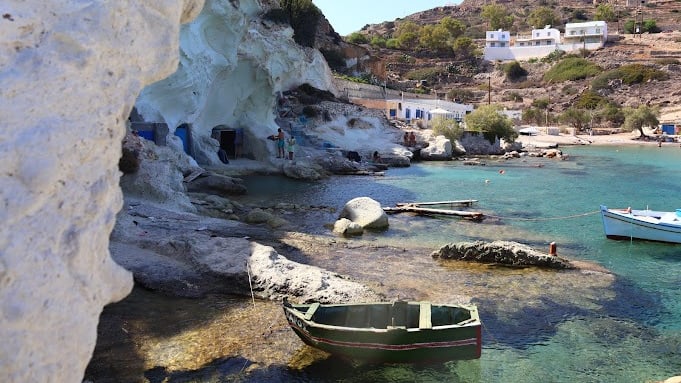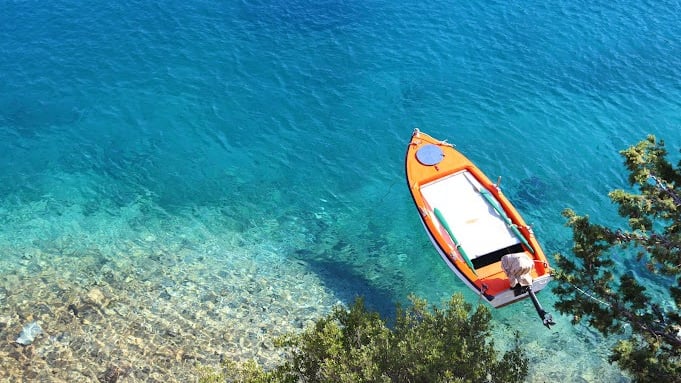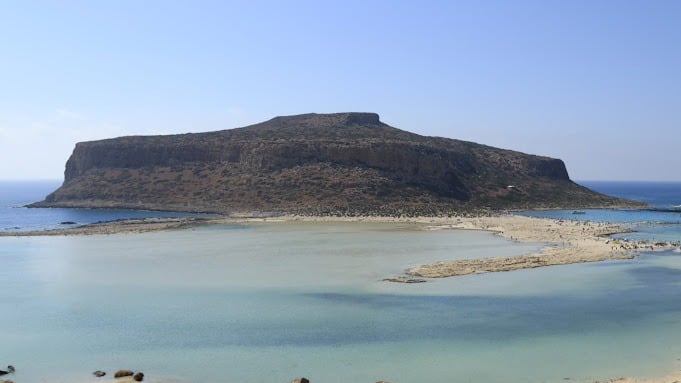
Exploring the Greek Islands: A Comprehensive Travel Guide
This guide is created to help travelers match their holiday style—romantic, adventurous, family-friendly, budget-conscious, or party-focused—with the perfect island, while also considering travel logistics, accessibility, and sustainable tourism practices.
TRAVEL STORIESGREECE
Island Groups and Unique Experiences
The Greek islands are classified into several groups, each presenting a unique blend of scenery, culture, and activities. Among these groups, the Cyclades, Ionian Islands, Dodecanese, and Sporades stand out for their distinctive allure and experiences they offer to visitors. The Cyclades, renowned for their iconic white-washed buildings and charming villages, particularly on islands like Mykonos and Santorini, boast vibrant nightlife and stunning sunsets. Travelers seeking lively beach parties, upscale dining, and modern accommodations will find the Cyclades an enticing destination.
In contrast, the Ionian Islands, which include several lush, verdant landscapes such as Corfu and Zakynthos, provide a different atmosphere. These islands are characterized by their beautiful beaches, archaeological sites, and traditional villages. Corfu, for example, offers visitors tranquil beaches and captivating history, creating a serene escape from the hustle and bustle often associated with more tourist-heavy locations. Adventurers can enjoy activities such as water sports or hiking among stunning trails adorned by olive groves and wildflowers, enhancing the Ionian experience.
The Dodecanese, located in the southeastern Aegean Sea, present a fascinating mix of cultural influences due to their proximity to Turkey. Islands like Rhodes and Kos are famous not only for their history, including ancient ruins and medieval towns, but also for their beautiful beaches and picturesque scenery. The Dodecanese offer engaging opportunities for exploration, with activities ranging from historical tours to relaxing boat trips, providing varied experiences for every type of traveler.
Finally, the Sporades, known for their lush green landscapes and serene ambiance, feature islands like Skiathos and Skopelos. The Sporades are perfect for those looking for quiet beaches and natural beauty, allowing visitors to immerse themselves in the tranquility of the surroundings. Each island group within the Greek archipelago unveils its own unique charm, ensuring that travelers have an extensive range of experiences to choose from, making the Greek islands an unparalleled travel destination.


Emergency Preparedness and Safety Tips
Traveling to the enchanting Greek Islands can be an unforgettable experience, but it is essential to be well-prepared for any emergencies that may arise during your visit. By adhering to safety tips and understanding how to navigate potential risks, you can ensure a secure and enjoyable trip. One of the first steps in your emergency preparedness is to familiarize yourself with vital contact numbers, including local emergency services. In Greece, the emergency service number is 112, which can connect you to police, fire, or medical assistance. Additionally, it is advisable to secure appropriate travel insurance that covers health emergencies and unexpected trip disruptions.
Health and safety measures should be prioritized while enjoying outdoor activities. Greece is known for its beautiful beaches and hiking trails, but accidents can happen. Always follow local guidelines when partaking in water sports or hiking excursions. This includes wearing life jackets for activities like sailing or jet skiing and sticking to well-marked trails for hiking. Proper sun protection is also crucial; apply sunscreen regularly, wear a hat, and stay hydrated, especially during the hot summer months.
Sustainability Practices for Responsible Travel
The Greek Islands, with their stunning landscapes and rich culture, face challenges from increasing tourism, making sustainable travel practices essential. Supporting local businesses is a key aspect of responsible tourism, as dining at local restaurants, purchasing handmade goods, and utilizing local tour operators not only provide an authentic experience but also ensure economic benefits stay within the community. This helps preserve traditional crafts, unique cuisines, and cultural heritage, maintaining the islands' distinct identity.
Minimizing environmental impact is equally important, with actions like reducing plastic use, choosing reusable items, and using public transport to lower carbon emissions. Tourists can further contribute by participating in conservation programs such as beach clean-ups or marine initiatives, directly aiding ecosystem preservation. Educating oneself about the islands’ environment, wildlife, and customs fosters respectful interactions and enriches the travel experience, ensuring the Greek Islands remain a sustainable and captivating destination for future generations.
Best Time to Visit
Timing your trip can greatly influence your experience. The peak tourist season spans from June to August, when temperatures soar above 30 degrees Celsius and beaches overflow with visitors. In fact, during this period, popular destinations may see crowd levels rise by up to 50%. For a quieter escape, consider visiting during the shoulder seasons of late spring (May to June) or early autumn (September to October). During these months, temperatures remain pleasant, crowds thin out, and prices often drop by 20% to 30%


Exploring Different Holiday Styles
Overall, the diverse offerings across the Greek Islands ensure that travelers can tailor their experiences to fit individual preferences and interests. Whether one seeks relaxation, family fun, or adventure, the Greek Islands stand ready to provide ideal getaways that cater superbly to every holiday style.
Romantic Escapes
For couples dreaming of an idyllic escape, Santorini (Cyclades) is a timeless favorite, with its caldera sunsets, luxury hotels, and charming villages like Oia. Hydra (Saronic Islands) offers a peaceful, car-free haven with cobbled streets and boutique accommodations. On Milos (Cyclades), couples can explore hidden coves, take private boat trips, or relax on stunning beaches like Sarakiniko. For a quieter option, Ithaca (Ionian Islands) combines mythology with secluded beaches and picturesque villages like Vathi. Folegandros (Cyclades) charms with cliffside vistas and tranquil vibes, while Kastellorizo (Dodecanese) is perfect for couples seeking intimacy and old-world charm.
Party and Nightlife
If nightlife is your focus, Mykonos (Cyclades) delivers with its exclusive beach clubs, world-class DJs, and chic bars like Scorpios and Cavo Paradiso. Ios (Cyclades) is ideal for young, budget-conscious travelers with vibrant bars and all-night parties. Kos (Dodecanese) features a buzzing bar scene in Kos Town and lively beachfront celebrations. Paros (Cyclades) offers stylish yet relaxed nightlife in Naoussa, blending dancing with sunset cocktails. For a mix of culture and revelry, Rhodes (Dodecanese) combines medieval streets with hotspots like Faliraki. Alternatively, Lesvos (North Aegean) surprises with its beach festivals and local ouzo bars.
Family-Friendly Getaways
Naxos (Cyclades) is a favorite for families, thanks to its long, sandy beaches, shallow waters, and family-friendly activities like kite surfing. Corfu (Ionian Islands) offers waterparks, Venetian architecture, and scenic family hikes. Zakynthos (Ionian Islands) is perfect for turtle-spotting excursions and famous attractions like Navagio Beach. Skiathos (Sporades) offers safe, sandy beaches like Koukounaries, ideal for children, along with water sports and boat trips. Lefkada (Ionian Islands) is a great choice for families, with its calm waters and traditional villages. Alonissos (Sporades) is perfect for nature-loving families who want to explore the nearby Marine Park and pristine beaches.
For an even more family-friendly experience, consider Kefalonia (Ionian Islands). This island is full of beautiful, child-friendly beaches like Myrtos and Skala, and also offers family hikes in places like Mount Ainos. Thassos (North Aegean) is another great option, known for its crystal-clear waters and green hills, perfect for family exploration and relaxed beach days. Skopelos (Sporades), with its stunning beaches and lush forests, offers an excellent destination for families to relax and explore nature together.
Adventure and Exploration
Kefalonia (Ionian Islands) offers incredible hiking opportunities in places like Mount Ainos and the Melissani Cave, as well as exciting adventures like kayaking to the stunning Myrtos Beach. Amorgos (Cyclades) offers rugged hiking trails with stunning sea views and underwater exploration for divers. Karpathos (Dodecanese) is a paradise for windsurfing and trekking through untouched landscapes. Samothrace (North Aegean) captivates with waterfalls, lush forests, and the island's mystical energy. Ikaria (North Aegean) offers unique hiking experiences, along with natural hot springs for relaxation. For off-road adventures, Chios (North Aegean) features medieval villages, mastic trees, and beautiful secluded beaches.
Lemnos (North Aegean) is another hidden gem for adventure lovers, offering vast sand dunes, volcanic landscapes, and hiking opportunities. Skiros (Sporades), with its scenic, rugged terrain, provides perfect hiking trails through pine forests and traditional villages. Karpathos (Dodecanese) is an ideal island for both hiking and exploring remote beaches by boat. Alonissos (Sporades) is home to the Northern Sporades Marine Park, where adventurous travelers can explore the underwater caves or hike through pine forests for panoramic views.
Off-the-Beaten-Path Serenity
For peace and tranquility, Folegandros (Cyclades) offers undisturbed beauty and picturesque cliffside views. Kea (Cyclades) provides a blend of natural serenity and historical intrigue with its ancient ruins and quiet beaches. Tilos (Dodecanese) stands out for its eco-friendly practices and charmingly remote atmosphere. Astypalea (Dodecanese), with its butterfly-shaped coastline, is perfect for unwinding on hidden beaches. Alonissos (Sporades) features a marine park and untouched landscapes, while Kythira (Ionian Islands) combines waterfalls, caves, and an old-world vibe ideal for those wanting to slow down and reconnect with nature.
Ithaca (Ionian Islands) offers a serene and almost mythical experience with secluded beaches and quiet villages like Kioni. Tilos (Dodecanese), committed to sustainability, features lush green hills and tranquil beaches perfect for those who want to experience true serenity. Kythnos (Cyclades) is a peaceful island with crystal-clear waters and a relaxed vibe, ideal for a slower pace and traditional villages like Merichas. Patmos (Dodecanese) is not only a spiritual destination but also offers a quiet escape for those wanting to unwind by the sea.
Cultural Immersion
For a cultural journey, Crete is unbeatable, offering the ancient Minoan Palace of Knossos, traditional Cretan music, and world-renowned cuisine. Rhodes (Dodecanese) is steeped in history, from its medieval old town to the Acropolis of Lindos. Syros (Cyclades), the Cyclades' cultural capital, blends neoclassical architecture with vibrant arts and music festivals. Patmos (Dodecanese), known as the "Island of the Apocalypse," draws spiritual travelers to the Monastery of St. John. For history lovers, Delos (Cyclades) is a UNESCO World Heritage site brimming with archaeological wonders. Chios (North Aegean) also offers unique medieval architecture and the world-famous mastic trade.
Naxos (Cyclades), known for its ancient ruins and charming villages, offers rich cultural experiences and a glimpse into traditional Greek life. Syros (Cyclades) is not only a cultural hub with its vibrant arts scene, but it also hosts festivals showcasing local traditions and music. Patmos (Dodecanese) offers a unique opportunity for spiritual and historical immersion with the Monastery of St. John and its UNESCO-listed sites. Delos (Cyclades) is a must-visit for anyone interested in ancient Greek history and mythology, as it's one of the most significant archaeological sites in the Mediterranean.
Budget-Friendly Options
Travelers on a budget can enjoy the natural beauty of Andros (Cyclades), known for its hiking trails and affordable stays. Thassos (North Aegean), with its pristine beaches and lush forests, offers excellent value. Kythnos (Cyclades) provides a serene, budget-friendly escape with simple accommodations and stunning beaches. Skyros (Sporades) charms with its affordability and local charm, while Leros (Dodecanese) offers peaceful villages and unspoiled beaches at a lower cost. Nisyros (Dodecanese) combines unique volcanic landscapes with budget-friendly accommodations, making it an excellent choice for adventurous yet frugal travelers.
Skiathos (Sporades) is a budget-friendly alternative with stunning beaches like Koukounaries, making it an ideal destination for families or couples looking to stay within budget. Lemnos (North Aegean) is an affordable destination, offering pristine beaches and a variety of outdoor activities, from hiking to kite surfing. Kea (Cyclades) is also a great option for travelers seeking tranquility without the hefty price tag. Astypalea (Dodecanese) is a hidden gem, combining budget-friendly accommodations with gorgeous beaches and scenic vistas. Alonissos (Sporades) offers affordable stays while providing access to unspoiled nature and a thriving marine ecosystem.




Travel Tips for Planning Your Trip
Planning a trip to the enchanting Greek islands requires careful consideration of various factors that can enhance your overall experience. One of the most critical elements to bear in mind is the timing of your visit. The best times to explore the islands are typically during the shoulder seasons of late spring (April to June) and early autumn (September to October). During these periods, the weather is generally pleasant, boasting clear skies and warm temperatures, while tourist crowds are considerably smaller. This allows for a more intimate experience with the local culture and landscapes.
Transportation is another crucial aspect of your travel planning. The most common way to navigate between the islands is by ferry, with numerous companies offering regular services connecting major islands such as Santorini, Mykonos, and Crete. It is advisable to book your ferry tickets in advance, especially during peak season, as they can fill up quickly. Alternatively, for those who prefer faster travel times, domestic flights are available, linking several islands directly to Athens or other larger hubs. Setting aside time for travel between islands is essential, as schedules can vary based on the season and weather conditions.
Accessibility is also an important consideration when selecting your destinations. Some islands, such as Santorini and Mykonos, are well-equipped to accommodate tourists with mobility challenges, providing varying levels of accessibility in transportation and accommodations. In contrast, others like Milos and Hydra may present challenges due to their rugged terrain or lack of vehicle access. Researching accessibility options will ensure a more comfortable and enjoyable experience for all travelers. By paying attention to these practical details, you can set the stage for a memorable adventure through the diverse and captivating Greek islands.




Location: Where to Start?
The location of your chosen island will play a significant role in planning your trip. For those short on time, the Saronic Gulf islands like Hydra and Aegina are ideal, with travel times of less than two hours from Athens. These islands are perfect for weekend getaways or a quick escape from the bustling capital.
If you have more time, the Cyclades and Ionian Islands offer a variety of options, from the iconic landscapes of Santorini and Mykonos to the green, Venetian-influenced charm of Corfu and Zakynthos.
For seasoned travellers or those looking for something off the beaten path, the Dodecanese islands like Rhodes or Patmos and the North Aegean islands such as Chios and Lesbos reward visitors with authentic experiences and fewer crowds. Choosing the right location depends on how far you’re willing to travel and the type of adventure you seek.
Islands with Airports for Easier Access:
If convenience is your top priority, islands with airports provide a hassle-free travel experience, especially for short trips or families travelling with young children. Santorini and Mykonos offer direct flights from Athens and major European cities, making them ideal for weekend escapes. Paros and Naxos, now increasingly well-connected, provide the same Cycladic charm with fewer crowds and more affordable options. In the Ionian Islands, Corfu and Zakynthos are perfect choices for scenic holidays with quick access by air.
Crete, with airports in Chania and Heraklion, is a versatile destination offering everything from luxurious resorts to hiking in the Samaria Gorge. Meanwhile, Rhodes and Kos in the Dodecanese combine fascinating history with modern amenities. Booking flights early, particularly during peak summer months, ensures you’ll secure the best options and avoid last-minute stress.
Getting the Ferry from Athens
For a more immersive travel experience, consider taking a ferry to your chosen island. Ferries from Athens offer a scenic journey through the Aegean Sea, allowing you to soak in the beauty of the surrounding islands. Athens has three main ferry ports: Piraeus, Rafina, and Lavrio.
To book ferry tickets, websites like Blue Star Ferries, Hellenic Seaways, and Ferryhopper provide a user-friendly way to plan your journey.
